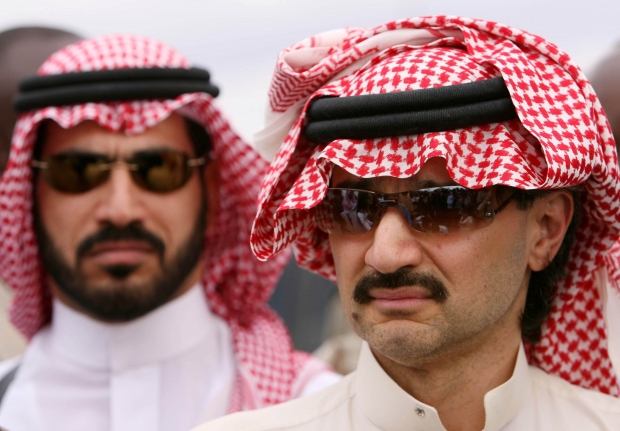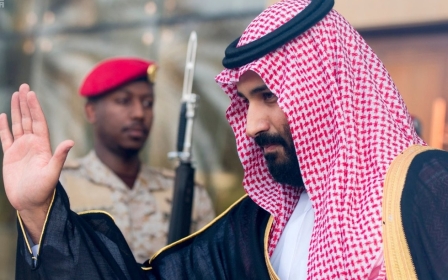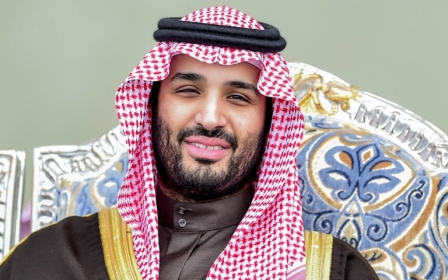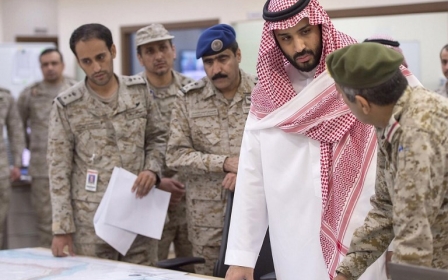The night of the long knives in Saudi Arabia
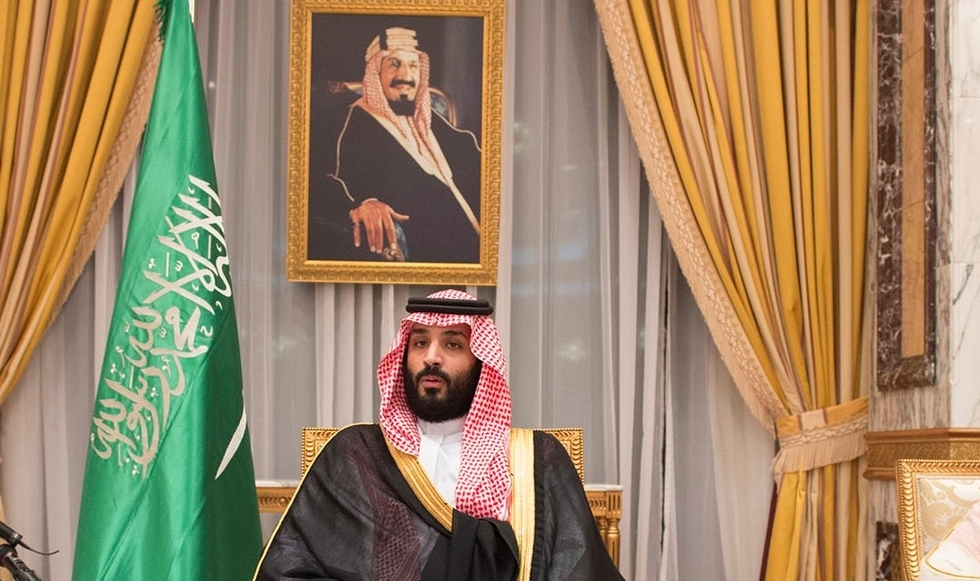
The night of 4 November could truly be the Night of the Long Knives in Saudi Arabia.
The night started with the sacking Prince Mutaib bin Abdullah, son of deceased King Abdullah and head of Saudi National Guard, a tribal force created to protect the royal family and key oil areas in the kingdom.
Controlling Saudi coercion machinery
Since its consolidation in the 1960s, with the help of Britain, the Saudi National Guard (SANG) shed its past as a tribal militia, created out of the ikhwan fighters who launched Jihad on Saudis in the early years of the kingdom, to become a modern para-military force, balancing the army and other security forces.
At the time, the regime preferred to have multiple coercive forces led by several princes for fear of army coups along those that dominated Egypt, Syria and Iraq in the 1950s and 1960s. After foiling several coup attempts by army officers in the late 1960s, the regime under king Faisal decided that several military forces serve security better than a single unified and strong army.
SANG became King Abdullah's power base and fiefdom in which patron-client relations with the tribes of Saudi Arabia were maintained. His eldest son Mutaib inherited the position to command SANG during his father's time as king but with Muhammad bin Salman's fierce drive to control all Saudi coercive bodies, including the army, and security forces, SANG was the last unit to be targeted.
As no real challenge to Muhammad bin Salman can come from princes with no militia, he was keen to end his senior cousin's control over the last security body that can potentially undermine his rule.
It was surprising that he waited for so long.
Unprecedented purge
Since Mohammed bin Salman came to power in 2015, Mutaib was bound to be abruptly removed from office like his other senior cousin Crown Prince Mohammed bin Nayef, who had been sacked and put under house arrest in July. Mohammed bin Salman started an unprecedented purge within the royal household and among the most senior second-generation princes who might potentially threaten his takeover of the kingdom.
He is now de facto ruler and it won't be long before he becomes de jure. This will depend on whether his father voluntarily abdicates or is forced to submit to his young son's will. With Mutaib now sinking into oblivion, Mohammed bin Salman turned his attention to those princes with money, lest their financial empires become handy in future power struggles.
A calculated and premeditated purge at the highest level shattered peace during the early hours of the night
Within hours of a royal decree establishing an anti-corruption committee headed by Mohammed bin Salman, eleven princes together with several ministers were rounded up and detained. A calculated and premeditated purge at the highest level shattered peace during the early hours of the night.
Most of the detained princes remained unnamed in the Saudi official announcement but billionaire private investor Prince Walid bin Talal, owner of Kingdom Holding, was amongst them. Wealthy princes may use their accumulated wealth to challenge Mohammed's rule, sponsoring dissent abroad, and augmenting critical media coverage of bin Salman's economic and social policies.
In the case of Walid bin Talal, his financial outreach and investment may stand in direct competition with those announced by Mohammed bin Salman's economic Vision 2030. His Rotana media empire with its wide coverage of Saudi news can be turned against the aspiring prince at any time.
Ministers whom Mohammed bin Salman had appointed also lost their jobs under the pretext of fighting corruption. The ministry of economy lost Adil Fakih, its minister who was replaced by Mohammed al-Tuwaijri, who may facilitate further privatisation and Saudisation schemes in accordance with the prince's economic plans.
The prince's control
All this was not enough in one night. Panic gripped Riyadh residents as they heard the sound of a massive explosion. It turned out to be a ballistic missiles launched from Yemen and was destined to reach Riyadh airport. The authorities announced that the missile was intercepted and no casualties followed.
A three-year old war has failed to lead to the victory that Mohammed bin Salman as minister of defence and crown prince anticipated.
While Saudi air strikes on Yemen were launched in April 2015 under the pretext of protecting Saudi's southern borders, Yemeni missiles are now capable of reaching the heart of the kingdom's capital. The implications of the ballistic missile were lost after the expansive purge at the highest level.
Mohammed bin Salman may now feel secure after removing his rival cousins from office, banning others from travel, and detaining the rest in five-star hotels in Riyadh under heavy security.
However, feeling secure through such high risk moves may not be the ideal situation for a young autocrat, who proved to be intolerant of even silence. He requires everyone to publicly support his plans.
Saudi Arabia had always been ruled by multiple fiefdoms of senior princes but Muhammad bin Salman is truly making it now his own playground
Those who abstain from such banal public support and statements of applause face detention, exactly in the way he put in prison several clerics and professionals for simply remaining silence over his crisis with Qatar.
It is hard to see how a new hyper-modern, economically advanced kingdom is going to emerge out of backstabbing and purges, conducted at the highest level. There is no independent judiciary that can deal with corruption cases, no royal family council that can restrain the erratic young prince, and no credible organised opposition that can undermine the prince’s control over the country.
In this situation, violence looms large over the kingdom, with those capable of committing atrocities coming to occupy a vacuum created by bin Salman's autocratic rule that silences even his own cousins, let alone humble commoners with no power whatsoever to challenge him.
Saudi Arabia had always been ruled by multiple fiefdoms of senior princes but Mohammed bin Salman is truly now making it his own playground.
- Professor Madawi Al-Rasheed is a visiting professor at the Middle East Centre at LSE. She has written extensively about the Arabian Peninsula, Arab migration, globalisation, religious transnationalism and gender. On Twitter: @MadawiDr
The views expressed in this article belong to the author and do not necessarily reflect the editorial policy of Middle East Eye.
Photo: Saudi Arabia's Crown Prince Mohammed bin Salman sits during an allegiance pledging ceremony in Mecca, Saudi Arabia June 21 2017 (Bandar Algaloud/Courtesy of Saudi Royal Court/Handout via REUTERS)
This article is available in French on Middle East Eye French edition.
New MEE newsletter: Jerusalem Dispatch
Sign up to get the latest insights and analysis on Israel-Palestine, alongside Turkey Unpacked and other MEE newsletters
Middle East Eye delivers independent and unrivalled coverage and analysis of the Middle East, North Africa and beyond. To learn more about republishing this content and the associated fees, please fill out this form. More about MEE can be found here.



